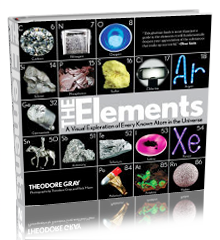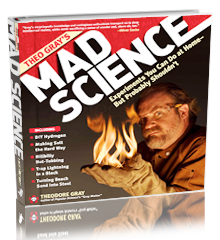Damascus steel (modern). | |||
| Sample Image | Spin Video | QuickTimeVR Rotation | |||
| Damascus steel (modern). Steel is iron plus just the right amount of carbon. Too little and you have soft iron. Too much and you have brittle cast iron. Just right, and you have steel able to slice lesser metals like butter. Mastering the art of getting the mixture just right took literally thousands of years after original discovery of iron. One of the interesting methods people invented to deal with this problem came to be known as Damascus Steel. It is made from alternating layers of high and low carbon steels: The high carbon steel is hard but potentially fragile, the low-carbon steel is tough and resistant to fracturing. This sample is a modern example made with the pattern-welding technique. It is made in a "twist" pattern out of 1095 and O1 steels with 8% pure nickel twisted in, so says Michael Z. Williamson the author and knife expert who donated this sample to my table. See below for an example of antique Damascus steel. Source: Michael Z. Williamson Contributor: Michael Z. Williamson Acquired: 1 December, 2005 Text Updated: 11 August, 2007 Price: Donated Size: 2.5" Purity: >90% | |||
|

